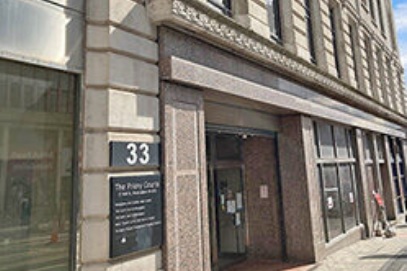High Court rules on ‘toxic feud’ over property dispute

A long-running and bitter property dispute between two brothers that escalated to criminal charges after a violent confrontation has resulted in an award of just £5,000.
Disagreements over part of the site of the former Tilt Hammer Inn on Alum Rock Road in Birmingham had simmered for more than 20 years, with agreements ignored and payments not made.
A High Court claim was launched, which led to a covert recording taken by one brother whilst visiting his mother in hospital in an effort to gain evidence to strengthen his case.
The case is estimated to have generated legal fees of £250,000 even though the land at the centre of the claim was only valued at £100,000.
Mr Justice Williams said the costs were “wholly disproportionate” but added “this is not so much a commercial dispute, but rather a most unfortunate, toxic and long running family feud”.
Two brothers Aslam Abbas and Shabir Hussain were the second generation of the family that owned Piper Clothing Company in Birmingham.
Together they bought the Tilt Hammer in 2001, which was by then a disused and derelict public house, as a development property. The pub was demolished in 2005.
The duo later bought a 22-bed hostel in Sparkbrook together in 2012, and had also taken on joint ownership of a third property in Birmingham.
After the business relationship between the brothers had “broken down irretrievably”, an oral agreement was reached in autumn 2015 to divide up the properties.
However there was later disagreement about what was agreed and when payments were due, although in one meeting “£30,000 in cash was collected, counted and then placed in a plastic carrier bag” before heading to a solicitors’ firm.
The brothers’ relationship continued to deteriorate, culminating in “an ugly and armed confrontation” when Abbas’s son and other family members visited Shabir Hussain in November 2019.
In April this year four defendants pleaded guilty to affray instead of going through a scheduled trial for more serious charges of violent disorder.
The dispute over the land and other payments was mostly based on conversations and unwritten agreements, with the judge acknowledging “it has not been an easy task on the available evidence to piece together events and conversations going back almost 30 years”.
Williams said he did not find either brother “to be a reliable or at times a credible witness” and also criticised the evidence provided by other witnesses.
Abbas’s legal claim sought to enforce a disputed oral agreement that the part of the Tilt Hammer site would be transferred to him by Hussain.
However the judgement denied the claim, limiting it instead to a payment of £5,000.








